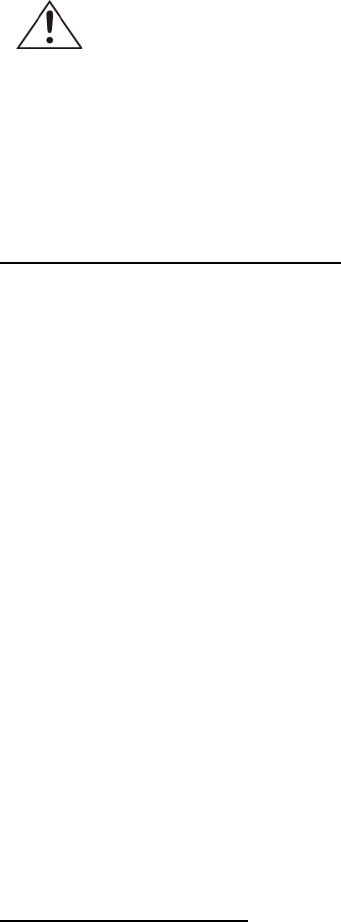
Never leave the chipper running unattended.
Do not attempt alterations, repairs, or adjustments while the chipper head is
turning. Always disconnect the PTO and stop the motor.
ALWAYS make sure the feed roll drive-shaft and pivots are properly lubricated.
ALWAYS make sure the feed roll clutch is properly lubricated and the clutch
releases when the handle is pushed toward the chute.
ALWAYS make sure the PTO shaft does not come apart or bottom out during
the normal lifting range.
Check the chip pile to see if the blades need to be serviced. Long slivers in the
chip pile are a good indication that the blades are dull and need sharpening.
CAUTION: Turn the chipper head over by hand before applying power to
make sure that the head is clear, all the bolts are clear and the knives clear the
case and cutter bar.
DRIVE-LINE SAFETY CHECKLIST
DRIVE-LINE SPECIFICATIONS The first step toward a safe application is
to specify and test the drive-line to make sure it operates properly
under expected field conditions.
Specify and test the proper size joints and telescoping members based upon the
power required by the implement, speed of rotation, joint angles, shock loads, and
expected life. More information may be found in all drive-line manufacturers’ catalogs.
Design and test the hitch angle to prevent the drive-line from:
Extending beyond the recommended maximum length.
Bottoming out.
Reaching a position that allows joints to lock.
Exceeding the maximum allowable angle for constant velocity (CV) joints.
Specify and test telescoping members to allow the lowest possible thrust loads,
considering the expected working conditions.
Specify and test torque limiters to control excessive shock loads. Where necessary,
specify and test overrunning clutches to prevent inertial loads from overpowering the
tractor.
Specify and test torque limiters to control excessive shock loads.
Where necessary, specify and test overrunning clutches to prevent inertial loads from
overpowering the tractor.
HAZARD REDUCTION The second step in specifying a safe drive-line
application is to eliminate as many hazards as possible.














